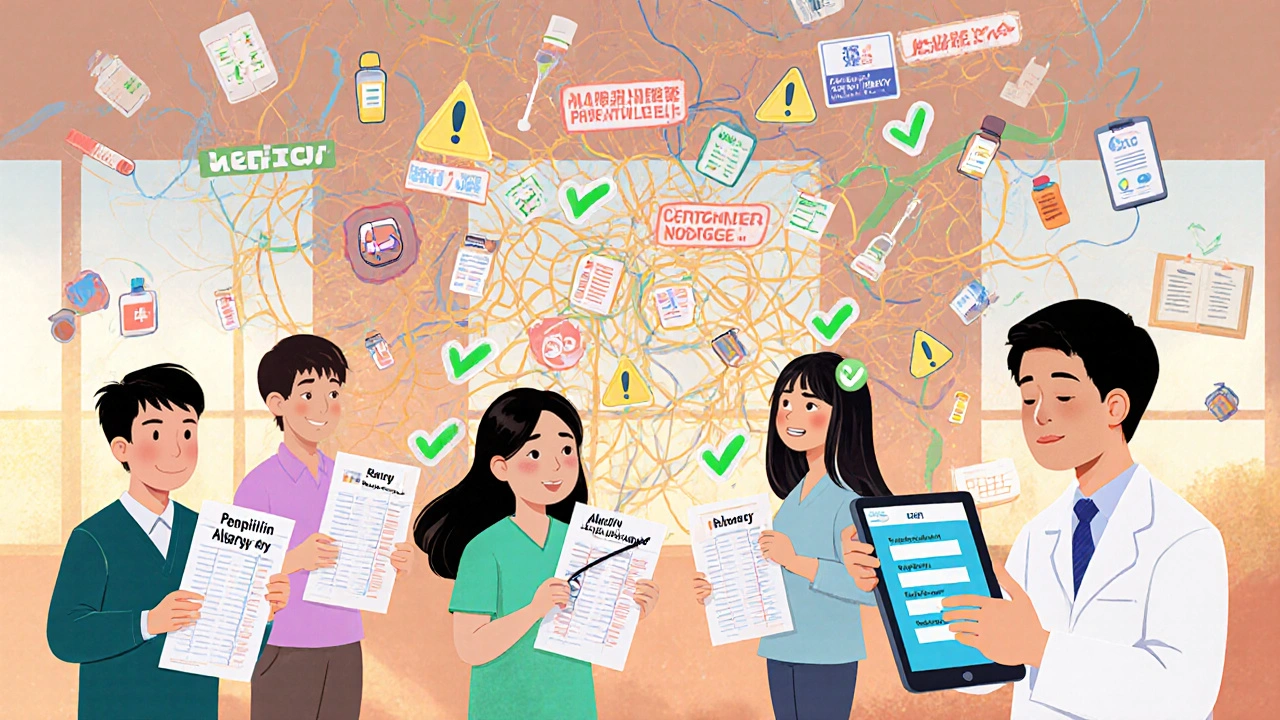Drug Reactions: What They Are, Why They Happen, and How to Stay Safe
When your body responds to a medication in a way it wasn’t meant to, that’s a drug reaction, an unintended response to a medication that can range from mild irritation to life-threatening emergencies. Also known as adverse drug reactions, these events happen to millions every year—not because of mistakes, but because every body reacts differently to chemicals. Some reactions are predictable, like a stomach upset from an antibiotic. Others are rare, sudden, and scary—like swelling that blocks your airway after taking a new pill. Knowing the difference isn’t just helpful; it can save your life.
Not all drug reactions are the same. Predictable side effects, common, dose-related responses that doctors expect and can manage happen often—drowsiness from antihistamines, dry mouth from blood pressure meds. These are usually harmless if you’re aware of them. But unpredictable side effects, rare, immune-driven events that have no clear pattern or dosage link are the ones that catch people off guard. Think rashes from penicillin, liver failure from a new painkiller, or anaphylaxis after a vaccine. These aren’t about taking too much—they’re about your body’s unique chemistry saying "no." These reactions don’t just happen randomly. They’re tied to what you’re taking, what else you’re on, your age, your liver and kidney function, and even your genes. A drug that’s fine for your neighbor might trigger a serious reaction in you. That’s why tracking what you take matters. It’s not just about remembering to take your pills—it’s about knowing what your body has reacted to before.
Some drug reactions are linked to other health issues. For example, anticholinergic drugs, medications that block acetylcholine, a key brain chemical like older antihistamines or bladder pills, can fog your thinking over time and raise dementia risk in older adults. Or take cold-induced urticaria, a skin reaction triggered by cold temperatures, not a drug—but still a type of immune response similar to drug allergies. Both show how your body’s defenses can misfire, whether from a pill or a winter breeze.
What you’ll find here isn’t a list of every possible reaction. It’s a focused collection of real, practical stories and science-backed insights about how medications interact with your body. You’ll read about why some people get dangerous rashes from antibiotics while others don’t. You’ll learn how to spot the difference between a bothersome side effect and a true emergency. You’ll see how drug interactions, genetic differences, and even liver health shape your risk. And you’ll find clear advice on what to do if something feels wrong after taking a new medicine.
This isn’t about scaring you off your meds. It’s about giving you the tools to use them safely. Whether you’re managing chronic pain, high blood pressure, or depression, knowing how your body might react makes you a better partner in your own care. You don’t need to memorize every warning label. You just need to know what to watch for—and when to speak up.

How to Update Your Allergy List Across All Healthcare Providers
Learn how to ensure your allergy list is accurate across all healthcare providers to avoid dangerous drug reactions. Step-by-step guide for patients on updating EHR records, requesting tests, and using patient portals.